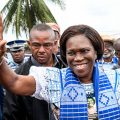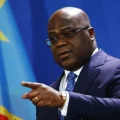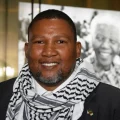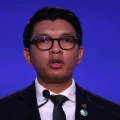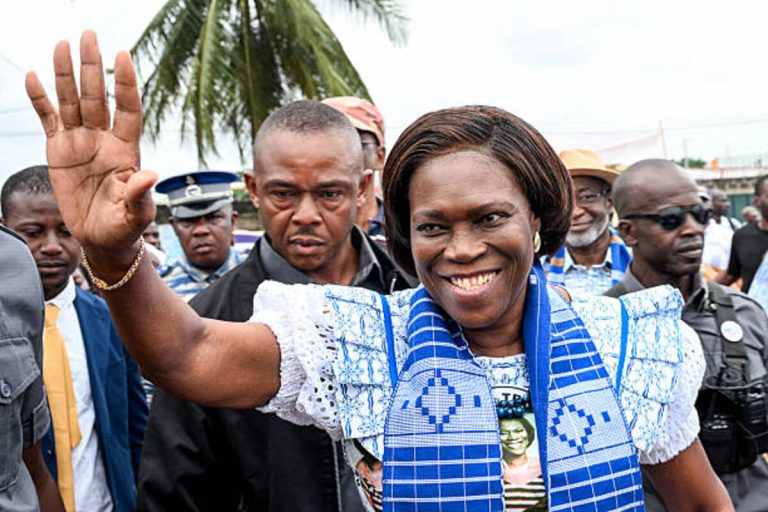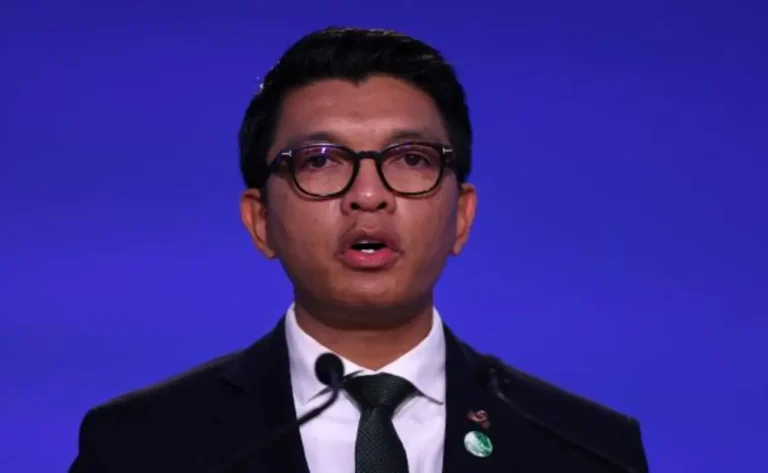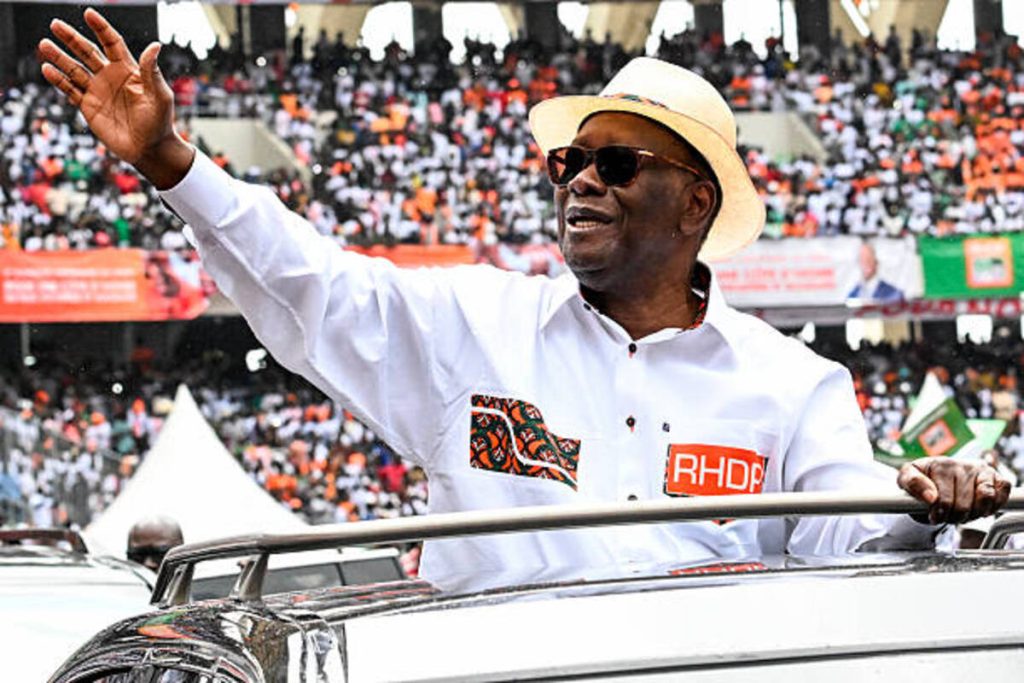
Ivory Coast President Alassane Ouattara gestures during a rally at Ebimpe Stadium in Abidjan, June 22, 2025. Sia Kambou/AFP via Getty Images
The Ivory Coast election took place on October 25, 2025, with incumbent Alassane Ouattara seeking a fourth presidential term under heightened scrutiny.
Ouattara cast his ballot at Lycee Saint-Marie de Cocody surrounded by aides and supporters.
Turnout varied significantly, with urban polling centres reporting sparse attendance and some rural areas experiencing longer queues.
National election authorities stated that security deployments covered all major districts to ensure order during the vote.
Observers noted that polling remained largely peaceful despite scattered incidents of vandalism in the centre-west.
According to the electoral commission, provisional results are expected within several days of the vote.
Ivory Coast election turnout and youth sentiment
Many young Ivorians voiced fatigue toward established political elites and questioned the inclusiveness of national leadership.
The under-30 demographic, representing the majority of the population, expressed concern over persistent unemployment and limited economic mobility.
Several young voters interviewed after casting ballots said they supported candidates promising jobs and transparent governance.
Others opted for abstention, citing frustration with entrenched political structures and unmet economic expectations.
Analysts observed that youth participation would be critical in shaping post-election political dialogue.
Ivory Coast election and generational transition debate
Ouattara described his candidacy as part of what he called a generational transmission process within his party’s leadership ranks.
Critics argued that the concept remained largely rhetorical, pointing to the absence of younger figures in key political roles.
Political scientists suggested that the lack of a unified opposition enhanced Ouattara’s electoral advantage.
Media discussions have focused on how generational dynamics influence the future direction of the ruling coalition.
Ivory Coast election security measures and arrests
The Interior Ministry confirmed the deployment of tens of thousands of officers to secure polling centres and transportation routes.
Authorities maintained that the scale of security presence was proportional to ensure voter confidence.
Rights advocates, however, warned that such heavy deployments might discourage civic participation in some areas.
Dozens of arrests were reported before and during election day for alleged disruptions and vandalism.
Government statements said detainees would face judicial proceedings under national law.
Ivory Coast election and human rights scrutiny
Human rights organisations expressed concern over limits on demonstrations during the campaign period.
Officials responded that protest restrictions were introduced strictly for public safety.
Observers from civic networks emphasised that transparent legal handling of detainees would affect perceptions of fairness.
International monitors highlighted the importance of respecting fundamental freedoms while maintaining order.
Ivory Coast election candidates and political landscape
Alassane Ouattara, in power since 2011, ran against a fragmented field of opposition candidates.
Several prominent figures, including past leaders and reform advocates, were disqualified or withdrew ahead of the vote.
Opposition parties failed to unite behind a single challenger, splitting the anti-incumbent vote.
Former first lady Simone Gbagbo, long active in national politics, cast her ballot and urged respect for democratic outcomes.
Political analysts said that competition reflected the broader tension between stability and generational renewal.
Ivory Coast election and the economy
Ouattara’s administration credited itself with sustained economic expansion over the past decade.
Ivory Coast remains the world’s top cocoa producer and a key economic hub in West Africa.
International investors closely watched the vote for signals on future policy direction.
Economists warned that growth must translate into inclusive benefits to sustain stability.
Rural voters cited limited access to credit and market volatility as persistent challenges.
Ivory Coast election regional and international response
Regional organisations including ECOWAS and the African Union called for calm and transparency in the counting process.
Foreign embassies in Abidjan issued statements encouraging respect for legal channels in dispute resolution.
Diplomatic observers reiterated their commitment to support peacebuilding and democratic governance in Ivory Coast.
Neighboring states such as Ghana and Burkina Faso expressed confidence in a stable outcome.
International observers are expected to release their assessments within the coming week.
Ivory Coast election media coverage and reporting
Major international outlets provided continuous coverage from polling sites in Abidjan and key regions.
Independent media reported on turnout and incidents, citing official and observer data.
Readers can reference complementary context through the Reuters election-day dispatch and BBC background reports for comparative analysis.
Reports noted that logistical efficiency and transparency would shape post-election confidence.
Ivory Coast election counting and next steps
Ballot counting began immediately after polls closed nationwide.
Officials said preliminary tallies from urban districts would be compiled before regional results.
The election commission stated that a runoff would be held if no candidate secures more than 50 percent of votes.
Political observers said public confidence in the process depends on the pace and accuracy of counting.
National media announced that certified results could take up to five days.
Ivory Coast election implications for governance
Analysts suggested a fourth term would consolidate ongoing infrastructure projects and economic programs.
Opposition leaders countered that prolonged incumbency risks stagnation and limited policy innovation.
Business groups emphasised the importance of continuity for investor confidence.
Civil society groups called for reforms addressing youth inclusion and anti-corruption measures.
Ivory Coast election legacy and national dialogue
Supporters hailed Ouattara’s leadership for transforming the economy and maintaining post-conflict stability.
Critics said unemployment and social inequality continue to challenge national cohesion.
Scholars observed that generational turnover within institutions remains limited despite economic progress.
Calls for inclusive dialogue and stronger democratic institutions continue across public forums.
Ivory Coast election and the way forward
Officials urged patience as results are tabulated and verified.
Opposition representatives said they would contest discrepancies through legal means if substantiated.
The weeks following certification will test Ivory Coast’s institutional resilience and democratic maturity.
